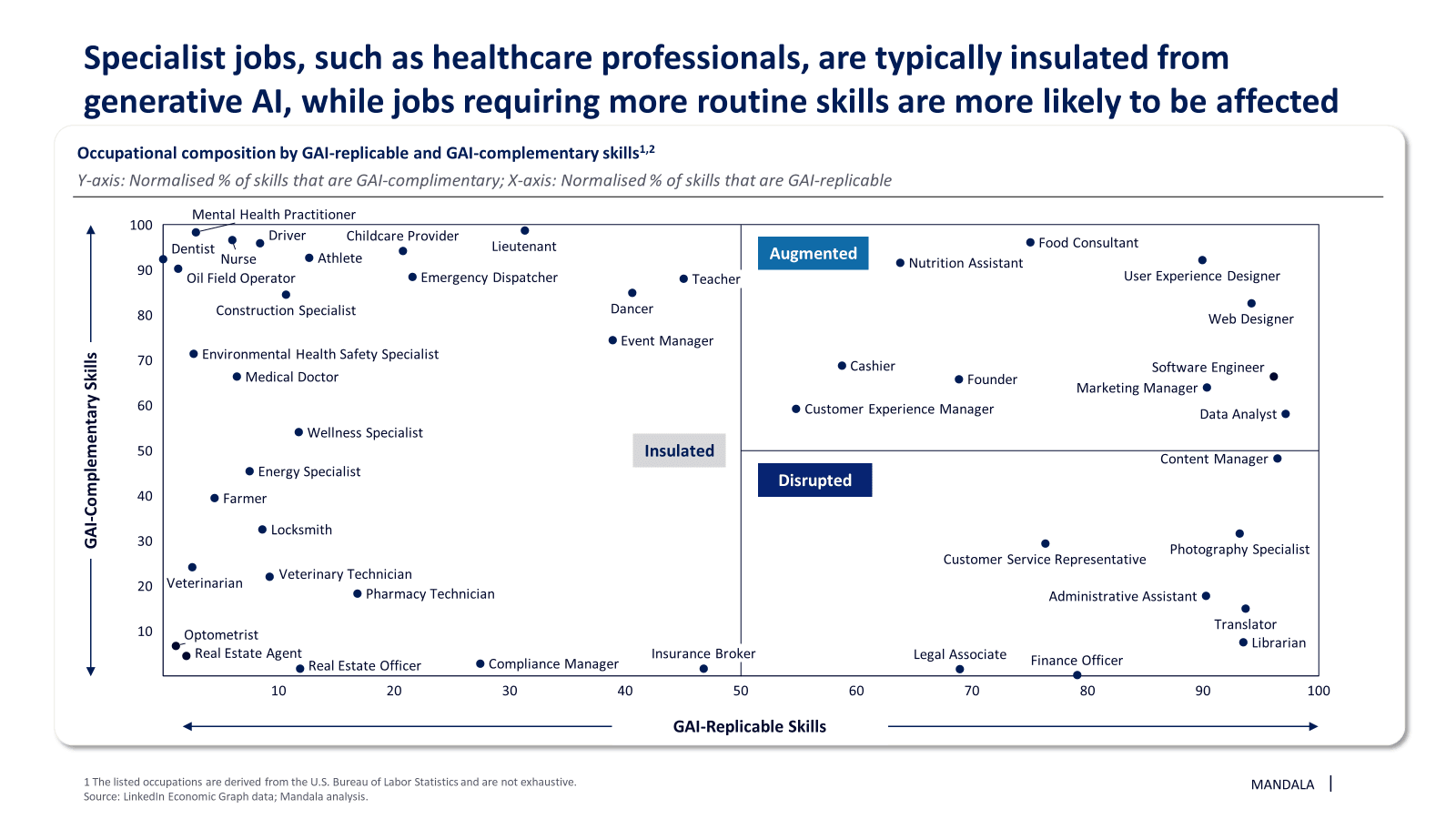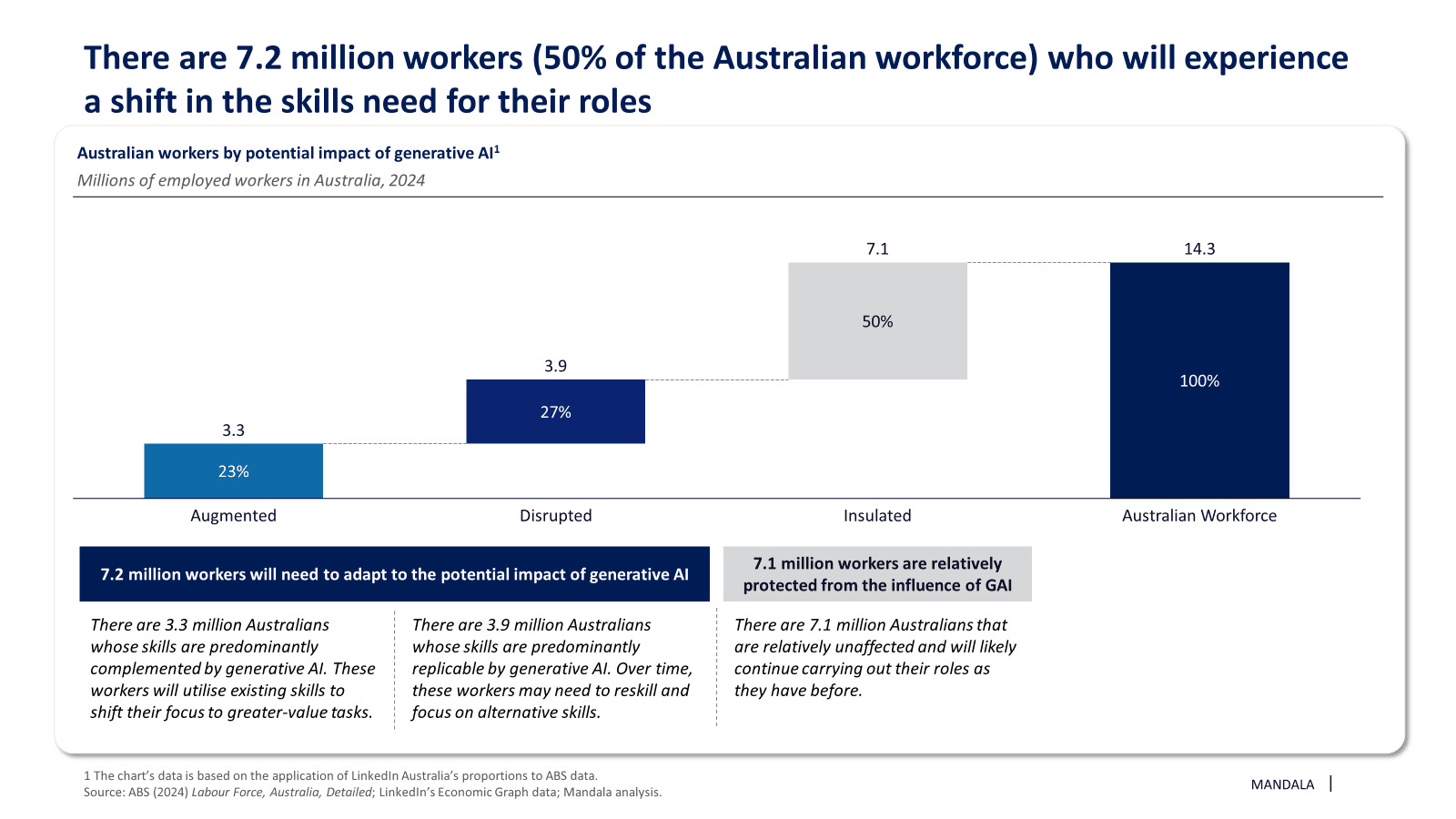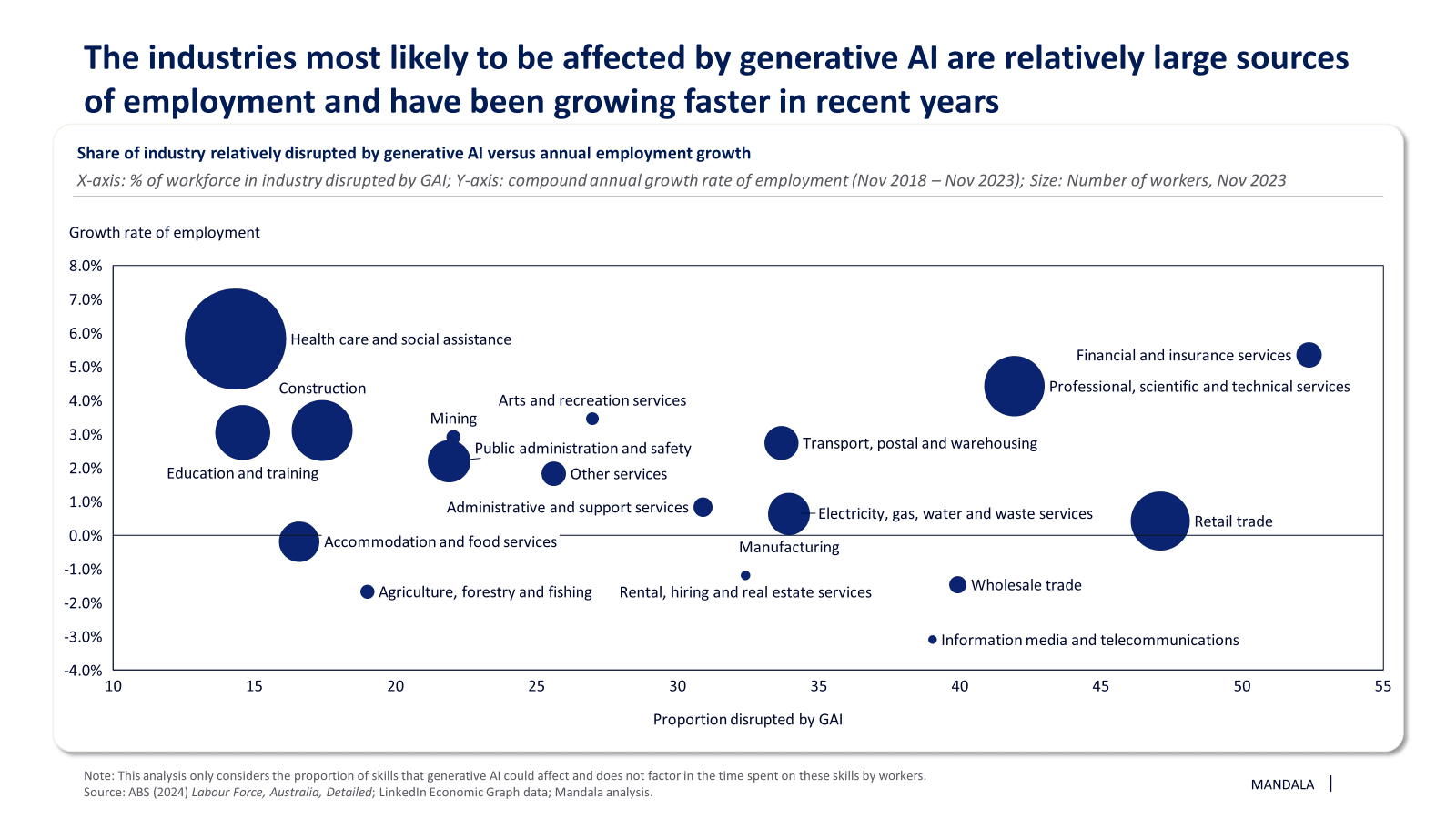
Preparing Australia's Workforce for Generative AI
21.03.2024 - 04:06
Our new research ‘Preparing Australia’s Workforce for Generative AI’ in partnership with LinkedIn, examines the potential influence generative AI could have on Australia’s workforce. Our report finds that generative will transform the workplace for 7.2 million Australians by creating opportunities for productivity gains. The influence of generative AI is expected to vary significantly across industries, with the effect expected to be greatest amongst service-related sectors, which are also large sources of employment in Australia.
Generative AI will change the skills composition of Australian workers
Generative artificial intelligence (AI) has emerged as a new technology and tool at the disposal of everyone. It is a subset of machine learning using foundation models that specialises in generating output based on training data and user input.
To identify the potential impact of generative AI on the Australian workforce, we have leveraged LinkedIn's Economic Graph data to understand what skills could be replicated by generative AI and what skills would need to be performed by a human but could be complemented with generative AI. Based on this skills-based framework, jobs can be classified into three categories: (1) Augmented: jobs where the core skills include a large share of both GAI-replicable and GAI-complementary skills; (2) Disrupted: jobs where the core skills include a large share of GAI-replicable and a relatively low share of GAI-complementary skills; and (3) Insulated: jobs that have a relatively small proportion of GAI-replicable skills in their core skills.

Generative AI will transform the workplace for 7.2 million Australian workers by creating opportunities for productivity gains
There are 7.2 million workers who will need to re-skill and adapt to the potential opportunity that generative AI presents.

There are 3.3 million workers who will likely use generative AI to augment their work, while another 3.9 million will likely use generative AI to carry out more routine and predictable tasks to focus on greater value-adding activities.
Service-related industries are most likely to be influenced by generative AI – these industries are typically larger sources of employment
While the influence of generative AI is seen at the skills and occupation level, it will also have a varying degree of effect by industry.

Industries that are most likely to be affected are service-related industries, which are typically larger sources of employment for Australian workers.
Read and download the full report here.
Read our latest posts

Restoring affordable access to specialist care in Australia
In this report, Mandala and Private Healthcare Australia (PHA) studied the affordability of specialist care in Australia. We find that specialist fees are rising, exacerbating cost-of-living pressures on consumers and worsening the affordability of healthcare. We propose a targeted package of measures to improve consumers' ability to access high-quality care, of their choosing, at fair and transparent costs.
3 Feb, 2026

Critical Minerals Strategic Reserve Design
Mandala's latest report for the Association of Mining and Exploration Companies (AMEC) sets out an industry-informed approach to implementing Australia’s Critical Minerals Strategic Reserve, with a focus on rare earths critical to national security and the energy transition. Bringing together 10 Australian rare earth developers, and drawing on international precedents and economic analysis, the report recommends a commercially viable and fiscally sustainable model to support new investment in Australia’s rare earths sector while managing risk to taxpayers.
12 Jan, 2026

The Value of Online Payments to New Zealand Businesses
Mandala partnered with Stripe on a research report based on the findings of a survey of 200 New Zealand businesses around the value of online payments and opportunities for future innovation.
18 Dec, 2025

Optimising Australia’s Specialist Investment Vehicles for the Net Zero Journey
Mandala, in partnership with IGCC, explores how Australia’s Specialist Investment Vehicles (SIVs) are deploying public capital to accelerate the net zero transition. The report examines the current funding landscape, identifies structural challenges that limit the effectiveness of public investment, and sets out a pathway to evolve the SIV system into a more coordinated, capital-led model aligned with national priorities.
10 Dec, 2025